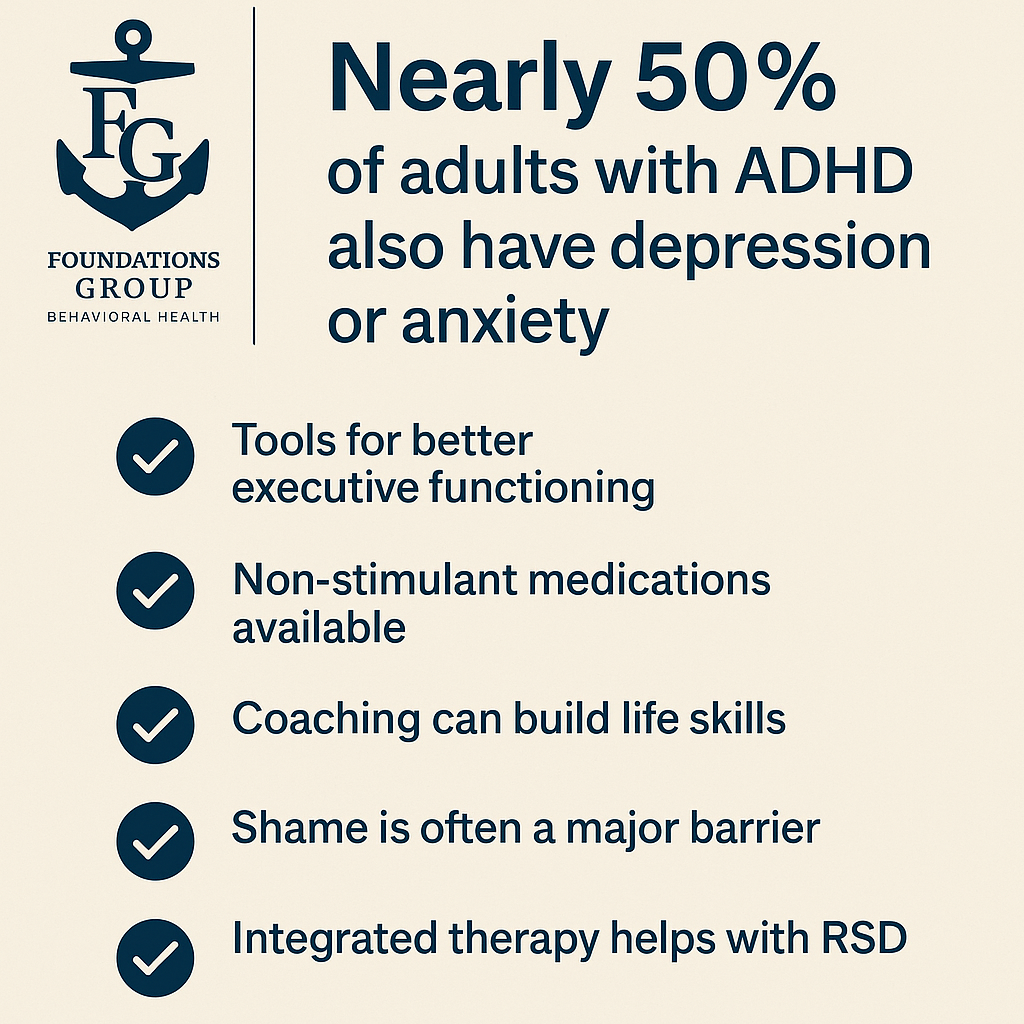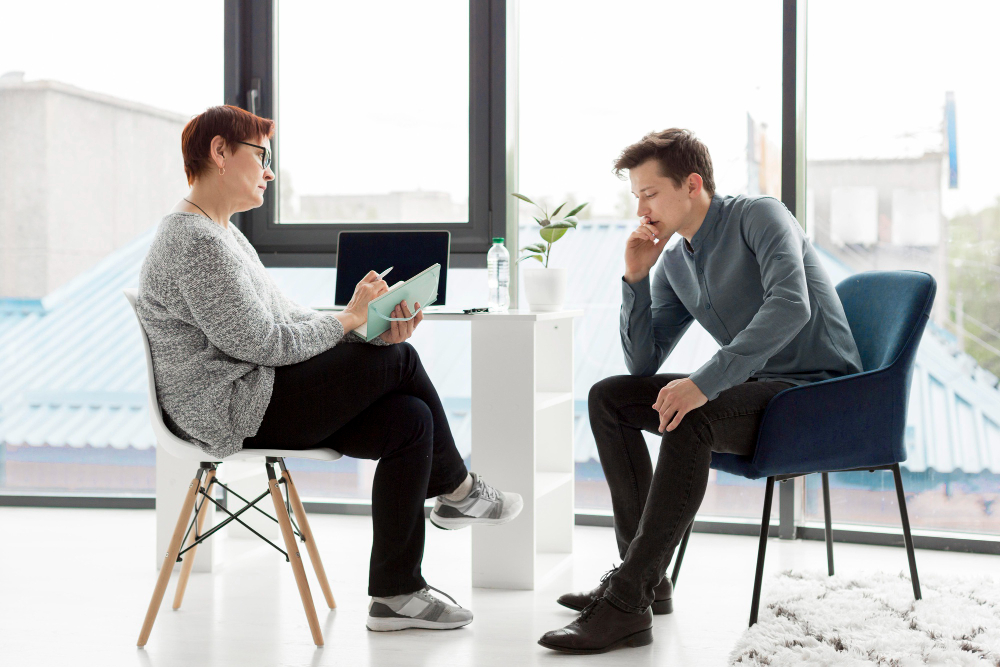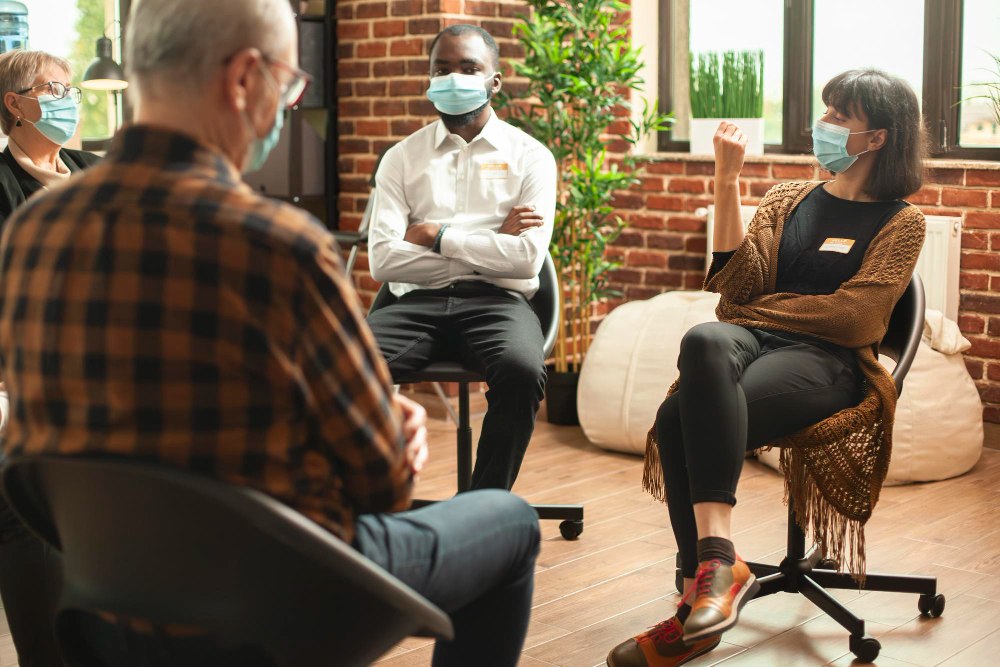If your adult child has ADHD and is floundering instead of flying, you’re not imagining things—and you’re not alone.
Maybe they moved back in after college didn’t work out. Maybe they’re stuck in a loop of starting jobs and ghosting them three weeks in. Maybe you’re watching them stay up all night, sleep until noon, ignore doctor’s appointments, forget car registrations, avoid laundry, and get visibly agitated when asked about anything “future-related.”
This isn’t laziness. This isn’t entitlement. This is a brain wired differently—still growing, still learning—and often, still reeling from years of shame, overwhelm, and misunderstood struggle.
They might be legally an adult. But developmentally? Emotionally? Logistically? They might still be building the skills they need to thrive.
And that’s okay.
Here are five ways to help your adult ADHD child move forward without shaming them—or pretending everything’s fine.
1. Executive Function Coaching: Structure Without Shame
ADHD isn’t a motivation problem. It’s a regulation problem—especially when it comes to executive functioning: planning, time management, decision-making, and task initiation.
For young adults with ADHD, it’s not that they don’t want to pay their bills or start that job application. It’s that their brain doesn’t easily line up the steps. They might know what needs to happen and still feel stuck or panicked when it’s time to start.
That’s where executive function coaching comes in. Think of it like a mental toolbox tutor—not a therapist, not a life coach, but someone trained in how ADHD brains process (or don’t process) tasks. They help your child:
- Break overwhelming goals into steps
- Create reminders and routines that actually work
- Build momentum in ways that feel manageable, not punishing
These tools are often missing from traditional therapy—and even many college disability services. But they’re essential to thriving in adulthood with ADHD.
Want to learn more? Our ADHD treatment for adults program includes access to coaching, peer support, and more.
2. A Soft Landing Beats a Cold Launch
It’s tempting to push a struggling 20-something out of the nest—especially when you’re scared they’ll never learn responsibility unless they’re forced to fly.
But for young adults with ADHD, especially those with co-occurring anxiety or depression, that launch can feel more like a cliff dive.
What helps instead? A gradual, supported transition:
- Staying at home with structure, not aimlessness
- Working part-time while learning how to budget
- Taking one community college class instead of four
- Living in a supportive housing program with built-in accountability
These aren’t cop-outs. They’re stepping stones.
And yes—your boundary-setting still matters. But don’t confuse slow with stuck. Sometimes, slower is smarter.
3. Don’t Rule Out Medication—Even If It’s Been Tried Before
If your child was diagnosed in grade school, they may have a complicated relationship with medication.
Maybe they felt “numb” or “not themselves” on stimulants. Maybe they were misdiagnosed, or their dosage was never quite right. Maybe they’ve been off meds for years and insist they don’t need them.
Here’s the truth: ADHD in adulthood is different than ADHD in childhood. Symptoms evolve. Responsibilities increase. And what didn’t work at age 9 might work brilliantly at age 22—with the right provider and the right plan.
Encourage them to meet with someone who specializes in adult ADHD—not just a general PCP. Treatment may include:
- Stimulant or non-stimulant medications
- Support for co-occurring anxiety or depression
- Sleep and energy regulation
- Side-effect tracking and lifestyle integration
Medication isn’t the only tool—but for many, it’s the difference between survival and actual progress.

4. Find a Therapist Who Gets ADHD
Standard talk therapy can be helpful—but it’s often not enough for adults with ADHD. They need therapists who understand:
- Rejection sensitive dysphoria (RSD)—an intense emotional reaction to perceived failure or criticism
- The overlap between ADHD and trauma, especially in kids who’ve internalized years of “Why can’t you just…?”
- How ADHD can mask or mimic anxiety, depression, or mood disorders
The right therapist will focus on what works, not just “how do you feel about that?” They’ll help your child:
- Set goals they can actually meet
- Learn how to navigate overstimulation and overwhelm
- Untangle shame from self-worth
Even better? Some ADHD treatment programs for adults offer integrated care—psychiatry, therapy, and coaching all in one place.
Our program in Falmouth County is built for exactly this kind of wraparound support.
5. Stay Present—Even When You’re Frustrated
This one might be the hardest.
You’re watching your child flounder. You’re paying their phone bill and getting calls from landlords and listening to them make excuses. It’s exhausting. It’s heartbreaking. And it’s not what you pictured for them—or for you.
But here’s the truth: They feel that, too.
Underneath the avoidance, the defiance, the “I’ve got this” energy—they’re scared. Embarrassed. Ashamed.
The best thing you can do?
- Hold boundaries without cutting off connection
- Offer structure without micromanaging
- Listen without jumping in to fix
And when they do ask for help—be ready to respond, not rescue.
FAQ: Supporting Your Adult Child With ADHD
Q: How do I know if my child needs professional ADHD treatment or is just “immature”?
A: Immaturity tends to resolve with time and natural consequences. ADHD doesn’t. If your adult child consistently struggles with focus, time management, emotional regulation, or daily responsibilities—even with motivation—professional help is likely appropriate.
Q: Can ADHD treatment for adults really help if they weren’t diagnosed until later in life?
A: Absolutely. Many adults are only diagnosed in their 20s or 30s. Treatment can help them reframe their past, reduce shame, and learn skills they never got to build in childhood.
Q: What if they won’t go to therapy or take medication?
A: You can’t force readiness—but you can stay connected and offer options. Share resources, validate their experience, and avoid ultimatums. Readiness often comes when they feel safe, not pressured.
Q: Do ADHD treatment centers work with parents too?
A: Yes. At Foundations Group Behavioral Health, we offer family support and education—because when your child struggles, you deserve support too.
📞 You’re Not Alone—And Neither Are They
If your adult child is struggling with ADHD, there is hope—and real help. Call 888-685-9730 or visit our Mashpee, MA ADHD treatment for adults page to learn more. We’re here to help you both move forward—one step at a time.








